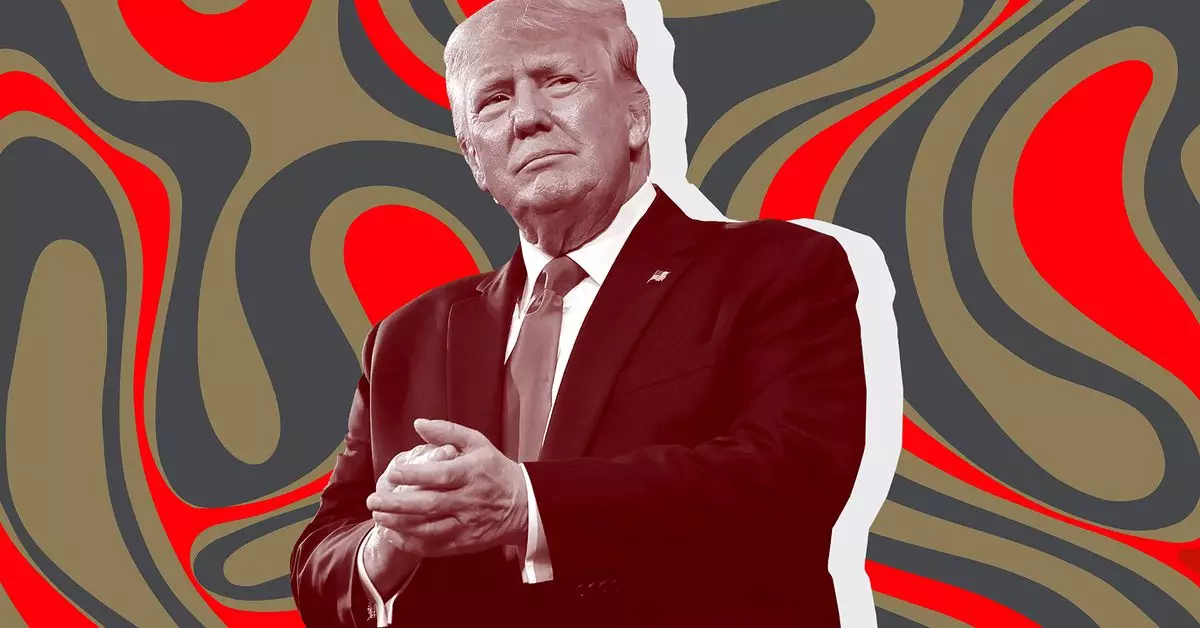The cryptocurrency landscape is inundated with both opportunity and skepticism, and the recent launch of World Liberty Financial (WLF) raises numerous questions about the intersection of politics, finance, and technology. Former President Donald Trump’s foray into decentralized finance through this venture has generated significant buzz, particularly with the introduction of its token, WLFI. However, this launch has not been without its hiccups, raising concerns ranging from technical challenges to regulatory implications and accessibility for average investors.
The WLFI token sale, which commenced with high expectations, faced immediate technical difficulties as its website crashed shortly after launching. This disruption revealed an underestimated demand; co-founder Zach Folkman claimed that over 100,000 purchasers had expressed interest. An astounding 72 million unique visits in just the first hour indicates that the platform piqued considerable public interest. Such overwhelming traffic, however, reflected poor preparedness on the part of the World Liberty Financial team, casting doubt on their operational capabilities. For a project intended to facilitate financial inclusion, this rocky start was especially troubling.
Despite the buzz, the initial data suggests that participation in the WLFI token sale was limited. With only 5,317 unique wallet addresses reportedly holding WLFI by Tuesday afternoon, the statistics reveal a disparity between interest and actual investment. The sale of over 532 million tokens out of a total of 20 billion available implies that significant quantities remain unsold. This situation should prompt further investigation into the efficacy of their outreach and marketing strategies, particularly given the claimed hype surrounding the product.
The promotional narrative surrounding World Liberty Financial posited it as a progressive tool aimed at the unbanked and de-banked populations. However, the sale’s constraints on access stand in stark contrast to this claim. Eligibility is limited to accredited investors as defined by the SEC, which notably excludes many potential participants. To qualify, individuals must demonstrate significant financial capabilities, highlighting a troubling contradiction between the project’s purported mission and its actual implementation. This raises ethical questions regarding the very audience WLF claims to serve.
The WLFI token, which is designed to be non-transferrable initially, serves as a governance mechanism for the platform. Holders will be granted a voice in critical areas such as protocol upgrades and partnerships. However, the mechanics of this governance and its implications for token utility remain to be fully outlined. Without clarity on how these decisions will be made or who qualifies as a decision-maker, investor confidence may waver. The essence of decentralized finance lies in its community-driven spirit—if a select few dominate decision-making, the advantages may be lost.
The alignment of World Liberty Financial with Donald Trump and his family’s stature in the political realm further complicates this narrative. Listing Trump’s sons as Web3 Ambassadors and promoting Trump as the “chief crypto associate” may drive initial interest, yet it also invites skepticism. The political motivations behind this project could overshadow its financial narrative, leading to public opinion being shaped more by political affiliation than by the merits of the cryptocurrency itself.
As the dust settles from the tumultuous launch of World Liberty Financial, the project stands at a crossroads, laden with potential yet fraught with challenges. The technical issues encountered and the limited accessibility raise critical concerns about its operational integrity and true inclusiveness. Just as cryptocurrency seeks to revolutionize financial systems, projects like WLFI must navigate the complex interplay of governance, access, and ethical responsibility. For investors and the broader crypto community, the evolution of World Liberty Financial will serve as a cautionary tale—highlighting the necessity for transparent and equitable practices in an industry often characterized by volatility and uncertainty.

